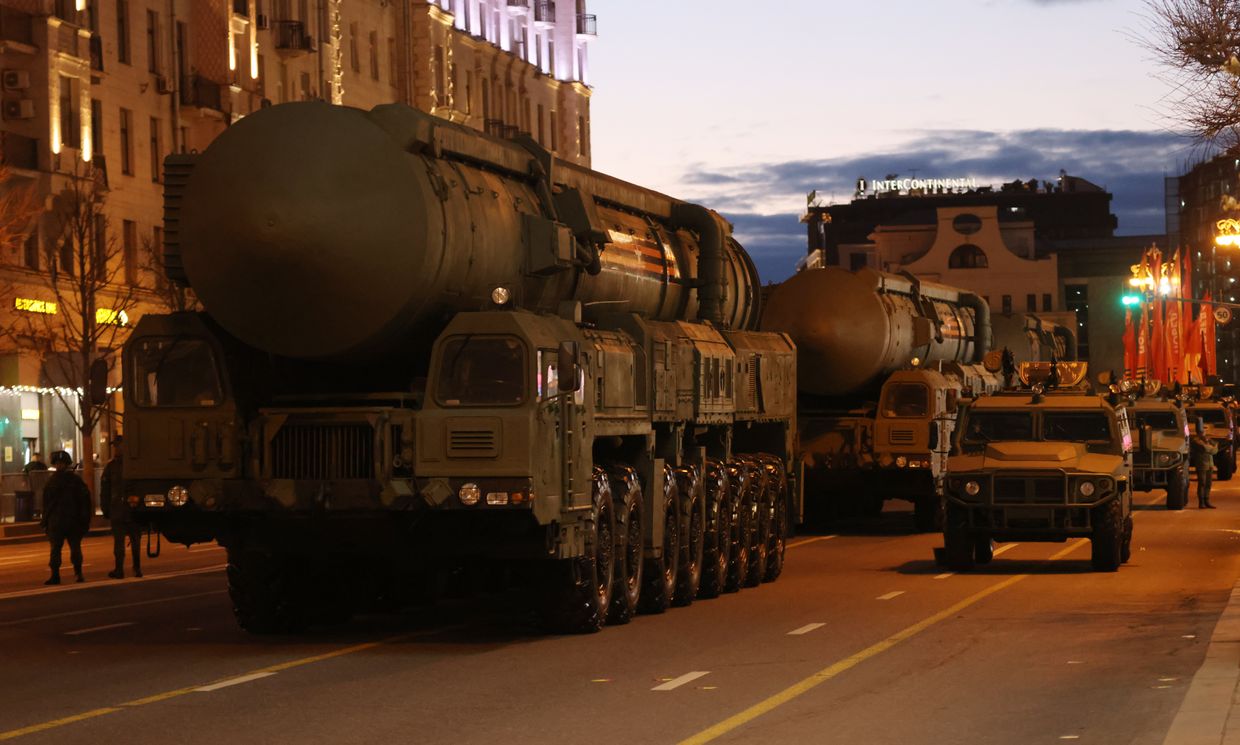CIA director says he thought there was 'genuine risk' of Russia's use of nuclear weapons in 2022

Bill Burns, the head of the CIA, said at the Financial Times' Weekend festival in London that he believed there was a "genuine risk" Russia would use tactical nuclear weapons in the first months of the full-scale invasion of Ukraine in 2022, the Telegraph reported on Sept. 7.
"There was a moment in the fall of 2022 when I think there was a genuine risk of a potential use of tactical nuclear weapons," Burns said, referring to the time around Ukrainian counteroffensives in Kharkiv and Kherson oblasts.
Following the Ukrainian counteroffensive in the south in late 2022, the U.S. "rigorously prepared" for Russia's use of strategic or tactical nuclear weapons, CNN reported in March, citing its undisclosed sources.
After Russian propaganda spread reports that Ukraine allegedly intended to use a so-called "dirty bomb" against Russia, U.S. officials feared the Kremlin would use this pretext as a cover for a possible nuclear attack, according to CNN.
U.S. President Joe Biden sent Burns to Turkey in November 2022 to meet with Sergei Naryshkin, the head of the Russian Foreign Intelligence Service. During the talks, Burns conveyed to his Russian counterpart the potential consequences of an escalation involving nuclear weapons.
In a statement issued at the time, the White House said: "He is conveying a message on the consequences of the use of nuclear weapons by Russia and the risks of escalation to strategic stability."
Russian President Vladimir Putin and other Russian officials have reiterated several times since the beginning of the full-scale invasion of Ukraine that Russia is "prepared" for a nuclear war and could use its nuclear arsenal if necessary.
In February, Deputy Chairman of Russia's Security Council, Dmitry Medvedev, said the world risked a global "apocalypse" if Western nations continued to send arms to Ukraine.
Deputy Foreign Minister Sergei Ryabkov also said on Sep. 1 that Russia will change its nuclear doctrine based on an analysis of recent conflicts and the West's "escalation course."
Of Russia's nuclear threats, Burns said at the event: "I don't think we can afford to be intimidated by that saber rattling or bullying, (but) we've got to be mindful of it."
According to a March report from the Federation of American Scientists (FAS), Russia currently has a total inventory of 5,580 nuclear warheads (including around 1,200 awaiting dismantlement), the most of any country in the world.











